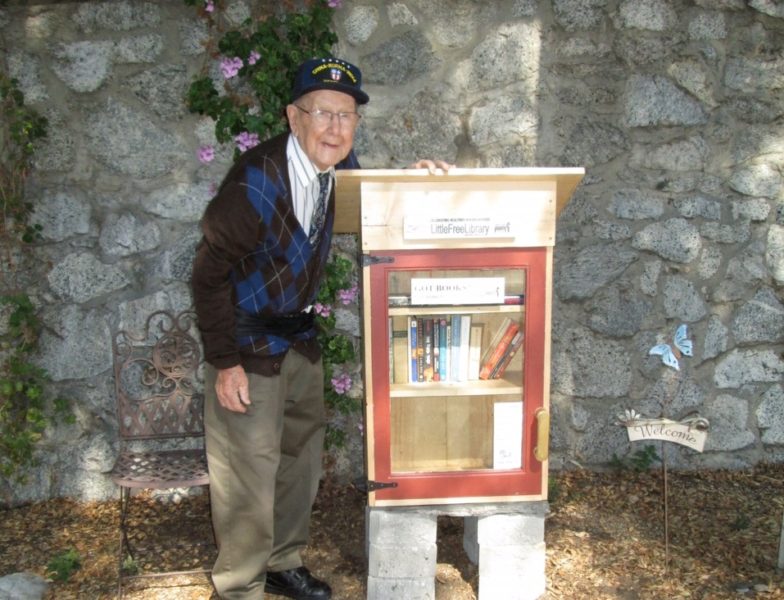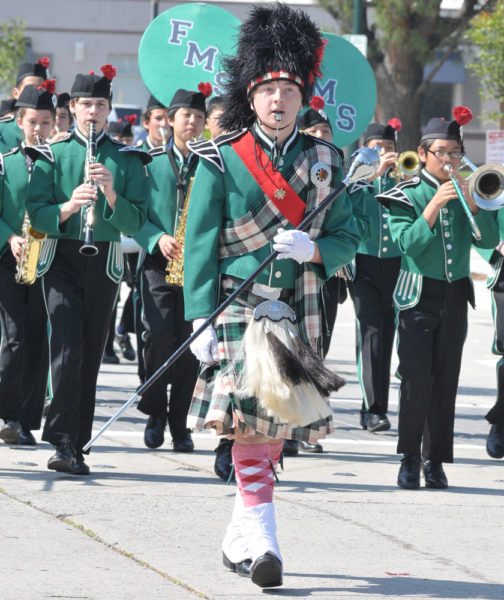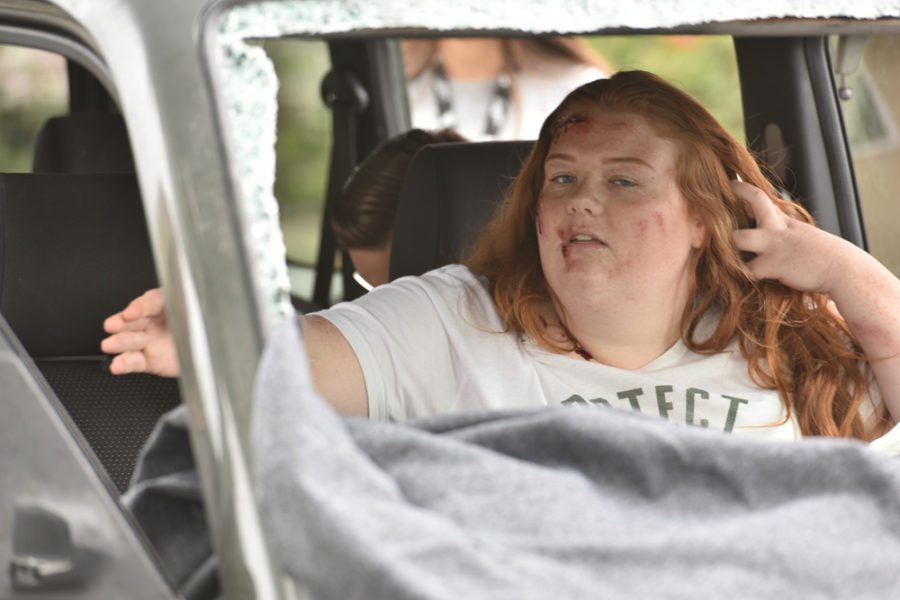
By May S. Ruiz
Whoever pronounces no one reads books anymore – the kind that’s not on an electronic device – has probably not heard of or seen a little free library (LFL). It looks a bit like a birdhouse, except it isn’t sitting in a tree but propped up on a stand in front of people’s yards and contains books for people to borrow and take home to read. It has of late become a worldwide phenomenon and has been known to start conversations among neighbors who might never have had occasion to chat until now.
The LFL was an idea concocted by Todd Bol in 2009 in Hudson, Wisconsin, who built a wooden container to resemble a one-room schoolhouse. He then mounted this on a post, which he installed on his lawn, then filled with books as a tribute to his mother, a book lover and school teacher.
Relates Bol, “We had a garage sale one day, and people who saw our little free library hugged it, kissed it, took selfies, and talked to it like it was little puppy. There was this little sparkle of energy and kinship that brought people together. So I started to make them and I gave away 30; then the media began covering us.”
In 2012, LFL became a non-profit organization whose mission is to inspire a love of reading, build community, and spark creativity by fostering neighborhood book exchanges around the world.
Recently, Bol’s simple brainchild can be found in all 50 U.S. states where there are more than 50,000 registered LFL book exchanges and in over 70 countries around the globe. People in even the remotest and farthest-flung nations, including Ghana, India, Nigeria, Pakistan, the Philippines, and Vietnam now have access to free books.
California was a little late in joining the movement, according to Bol, but has been the fastest growing in the past two years. In the Los Angeles area, it was a brief article in the newspaper about the LFL that ignited the fire that’s now ablaze and spreading in earnest.
Karen Hovanitz is the steward of the Florecita Farm Little Free Library in Altadena, charter number 3727. She says, “It was built by my then 94-year-old dad from a 1920s-era window from the Habitat for Humanity Restore and scraps of pine from his garage. The handle is made from vintage wooden thread spools. It sits by the street in front of our home which was originally the store for Florecita Farm. It was installed in 2012, the very first LFL in Altadena.”
“This neighborhood encompasses 144 households in a self-contained region that was developed from a dairy, chicken, and citrus farm in the 1950s,” Hovanitz describes. “When we moved to Florecita Farm in 1987, it was a fairly geriatric area. It has since dramatically changed and there are many young families with children living here. Books for young children, from less than a year old to seven, are taken most quickly and are seldom returned. There are several middle readers so I try to have a supply of YA novels for them; recent fiction is popular among adults. Adult and YA books always come back. The LFL is largely self-sustaining through donations. Occasionally I purchase children’s books from the Salvation Army to replenish stock.”
Continues Hovanitz, “Residents love the LFL; they enjoy donating books. Even if they don’t use it, they like knowing it’s there. It’s part of what makes our community special. I met Todd Bol recently and learned that one of his highest priorities, in addition to getting books into the hands of readers, is fostering community. Having a LFL promotes pride and ownership of community.”
“Because our neighborhood is somewhat isolated, I think almost all LFL patrons are from Florecita Farm. Hikers, mountain bikers, and horseback riders do pass through and may use the library. Although a homeless gentleman frequents our neighborhood; I have seen him on the chair by the library to read and I’m glad he feels comfortable. I love surreptitiously watching from my kitchen window as elementary-age kids ride up on bikes and skateboards to use the LFL,” concludes Hovanitz.
In Pasadena, there are 31 charter LFLs scattered throughout the city’s 23.13 square miles. Sue Feldmeth, who lives on Oakdale Street, had noticed some of the little libraries but didn’t know about the organization. She says, “I had seen them and heard about them. I thought there were just individuals who came up with designs and built their own library or book nook. I wanted to do something like that and when I went online I found out there was an official organization that did exactly that. It also offered for purchase kits to make the little houses or little libraries already made. Although it wasn’t cheap, I bought one; I figured it was one less project to give to my husband.”
Feldmeth explains, “About a year ago, I did some spring cleaning and cleared out my children’s books to make room on the shelf. I had a few boxes of these perfectly good books that someone else could read so I thought it was time to get my little free library going. I felt it would be a good way to get rid of my books and share them with others who would enjoy them.”
“What’s funny, though, is that we’ve been getting book donations. Now I have thrice as many as when I started out. I had been trying to get rid of them but ended up having to make room for more books in my home … so that backfired a little bit,” chuckles Feldmeth.
“I know people would return the books they borrow but now I’m really glad when they don’t,” Feldmeth adds. “I realize some feel uncomfortable not leaving a book in return; I put up a sign saying they can take a book and leave one, or pass the book along to someone, or keep it if they love it.”
“When we first moved here in 1999, when my now college freshman son was a year old, we were one of a few families with young kids,” discloses Feldmeth. “Now there are several school-age children in our area, so I decided to have a small box on the ground filled with children’s books to make it easier for small kids who can’t reach into the little library.”
“There’s a lot of foot traffic on our street – little kids on their way to school, neighbors walking their dog – so our library gets used a lot. Our LFL has space for two rows of books and when I see it down to one row, that’s when I put in a new group. I attach circle stickers to categorize them – adults, teens, YA, and children’s books. That’s also how I keep track of what’s going out and what’s coming in,” Feldmeth says.
“Our little library sits in the shade outside our house and I’ve been putting out a basket of lemons from my tree to share with people who come by. We have so many that we can’t possibly eat or use them all,” discloses Feldmeth. “It’s like killing two birds with one stone, really – encouraging book reading and building neighborliness.”
Another Pasadenan, Robin Trickett, reports she learned about the LFL by happenstance, “I stumbled across it one day while I was driving around town. Then I kept seeing one or two of these tiny houses with books when I would take my kids to school. So I thought, ‘Okay, I need to stop and find out what this is all about!’ Once I started to read up on it I had to join the book movement – both my husband and I are big readers and I wanted to encourage our kids to be the same. What a wonderful way to give back and encourage reading in the community!”
“About six months ago we put up our LFL. I find there is a lot of interest in the free library on our lane, not just from the 20 families that live here but also from delivery people and folks working at the houses on our street,” adds Trickett. “We are the stewards of our library and we select new books to put in weekly. Right now there are more children’s books than anything else but I mix it up with novels, cookbooks and bestsellers as well. My goal is to share my love of reading and I cover a variety of choices to appeal to everyone.”
Sean Moriarty, on Rose Villa, first saw the LFL in Chico, in Northern California. He says, “My sister-in-law has one. It piqued my interest so I did a little research online and learned more about it. What a fantastic idea! Then for Christmas last year she and her partner gave me a little library as a present.”
“Our LFL has been up for a few months and we’ve seen a pretty lively response. In fact my kids just informed me our supply is low so I would have to fill it back up again,” Moriarty states. “I’m not terribly scientific about what I stock it with. I have young kids so I make sure there are children’s books in the little library. And I read pretty widely – fiction, biography, history, you name it; we have books of general interest.”
Sums up Moriarty, “I see some books coming back and a few new titles showing up. It’s still early but over time we hope we see more books that we’d need a bigger library! I hope that people who respond to it appreciate it, are excited about it, and care. If we had a million of these across America, we’d be a better country.”
A similar sentiment was expressed to Bol one day at a recent conference he attended. He recounts, “The former governor of Wisconsin came up to me and said, ‘Todd, what’s going on in America right now – this divisiveness and polarization – that’s not us. The Little Free Library is more representative of who we are and what we are. We reach across the aisle and across the street. We pick each other up and make one another’s life better – we don’t care who they are or where they’re from.’”
For all of Bol’s good intentions, however, there are naysayers out there. He is very much aware of them and offers this analogy, “I believe a community is like a beehive: if everything’s done right, it will produce honey. But oftentimes, it’s beaten with a stick and yelled at. I don’t subscribe to all the negativity out there. I’m proud of LFL and how we’re making it a better world. I sound old-fashioned and corny, but reality is before us every single day – we see it.”
The scope of the LFL’s outreach has widened since 2012. Through its Impact Fund, Bol intends to put LFL in communities where it would make the greatest difference – trailer parks, apartment buildings, and high-need neighborhoods.
Bol launched an initiative to put a little library in every police department across the country – over 14,000 of them, according to him. There are currently four dozen LFLs in police departments in Detroit, Cleveland, Raleigh, Chattanooga, and New Orleans, among other cities. He says the L.A. Police Department has a LFL in every precinct.
“We also recently unveiled the Action Book Club which identifies authors and publishers who demonstrate community engagement,” adds Bol. “We ask people to sign up with us, read one of the books, go out and fix things in their neighborhood, then report back to us. One of my favorite stories is about this group of fourth-graders in Lafayette, Louisiana, who collected 100 pairs of new socks and gave them to the homeless. We’re gathering tales of people doing good around the world, one neighborhood at a time.”
“There’s a saying ‘it takes a village to raise a child,’” Bol expounds. “That’s a statement of observation. The statement really should be ‘how can I be a part of the village?’ What we want is for the LFL to be the spark for people to make things better through literacy, books, conversation, dialogue, and action.”
Lofty objectives and noble aspirations aside, at the core, the little free library simply takes us back to a time when we would walk up to our neighbor’s house to share a plate of freshly made cookies or to borrow a cup of sugar to bake some. For most of us, that outcome alone makes it a better world already.




